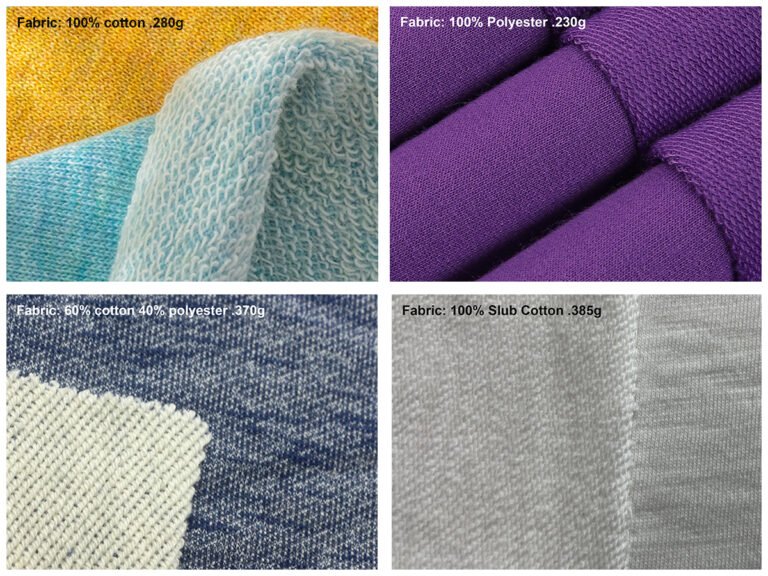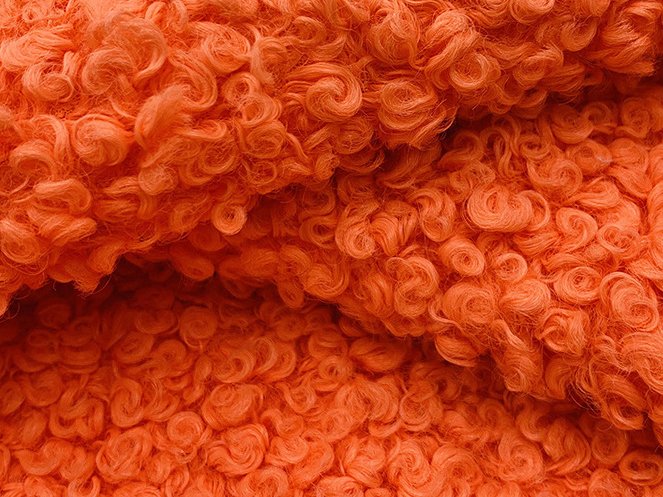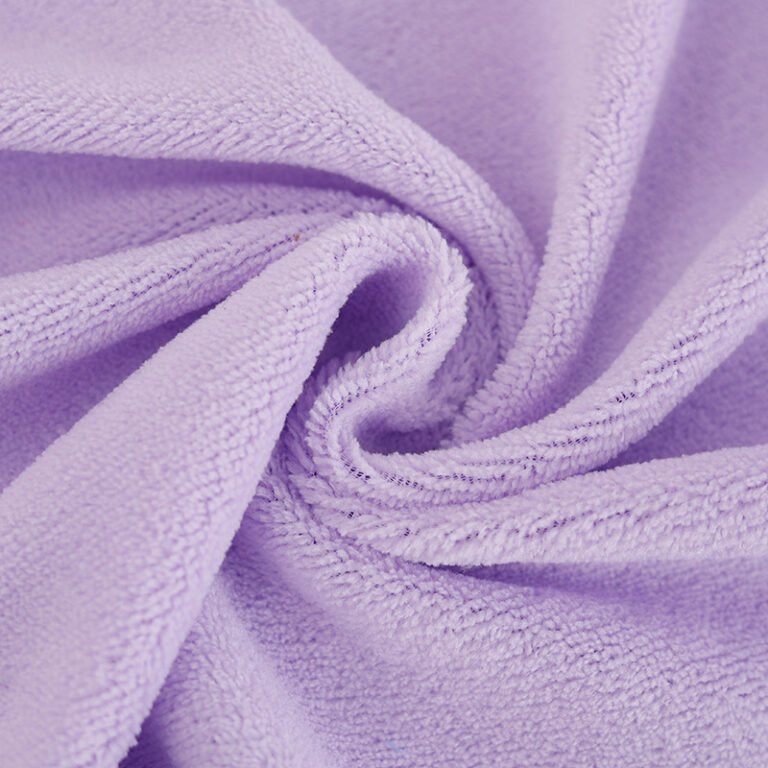Every Successful Clothing Brand From Start-Up
Kidswear Fabric Recommended
Key Points for Choosing Children’s Clothing Fabrics
In the dynamic world of fashion, designing kidswear has become more than just a creative endeavor—it’s a booming market segment. With the rising trend of matching outfits for parents and children, and the increasing emphasis on sustainability and safety, choosing the right fabric for children’s clothing is more crucial than ever.
Brands today strive to create collections that cater to both style and comfort, ensuring that the little ones look fashionable while feeling comfortable. This guide delves into the essential aspects of selecting kidswear fabrics, focusing on the most popular and suitable materials. From understanding the importance of breathability and durability to considering the environmental impact and safety of dyes, we cover everything you need to know to make informed fabric choices for your children’s clothing line.
When selecting fabrics for kidswear, several characteristics are paramount to ensure both comfort and practicality:
- Stain-resistant materials: Children are active and prone to spills and stains. Choosing stain-resistant fabrics ensures the longevity and cleanliness of the garments.
- Breathable fabrics: To keep children comfortable, especially during playtime, breathable fabrics are essential as they help regulate body temperature.
- Anti-wrinkle: Fabrics that resist wrinkling maintain a neat appearance even after extended wear and washing.
- Hypoallergenic fabrics: Sensitive skin is common among children, making hypoallergenic fabrics an ideal choice to prevent skin irritations.
- Fabrics made from natural fibers: Natural fibers like cotton are soft and gentle on the skin, making them perfect for children’s clothing.
- Moisture-wicking: Active children benefit from moisture-wicking fabrics that keep them dry and comfortable during physical activities.
- Skin-friendly: Fabrics that are soft and smooth to the touch are crucial for comfort, especially for younger children with sensitive skin.
- Durability: Kids’ clothes need to withstand rough and frequent use, so durable fabrics are essential to ensure the garments last longer.
By understanding these key points, you can ensure that your kidswear collection not only meets the highest standards of quality but also aligns with the latest market trends and consumer preferences. Dive in to explore our top fabric recommendations and learn why they are perfect for your next kidswear collection.

- Fabric Overview: Cotton is a natural fiber renowned for its softness, breathability, and absorbency. It can be woven or knitted and is commonly used in various garments. Combed and ring-spun cotton are examples of high-quality cotton fabrics. Cotton absorbs and releases body moisture, keeping the wearer cool and dry, making it ideal for sensitive skin.
- Pros: Comfortable, skin-friendly, breathable, and good moisture absorption.
- Cons: Wrinkles easily, can shrink, and relatively lower durability.
- Recommended Uses: Ideal for making T-shirts, baby clothes, sleepwear, and casual wear.
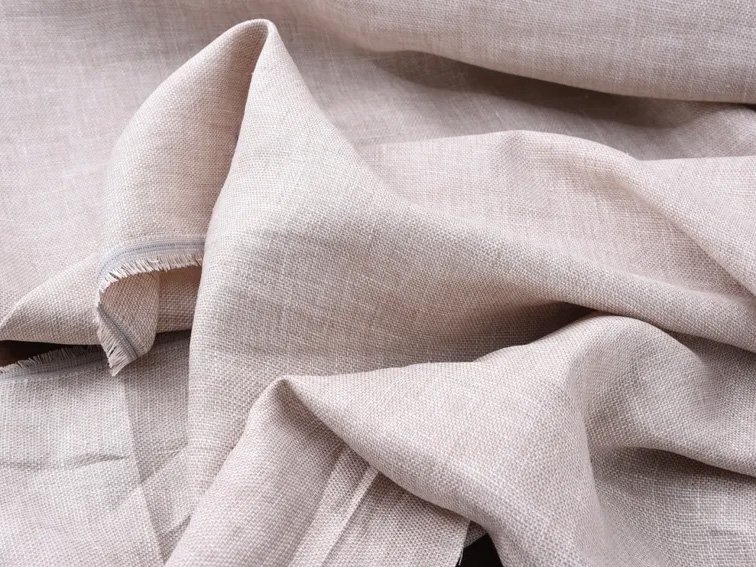
- Fabric Overview: Linen is a natural fiber known for its excellent breathability and moisture-wicking properties, making it perfect for hot weather. It is typically woven and has high fiber strength and light weight. While linen can feel rough initially, it softens with washing and wear. Linen’s natural antibacterial and hypoallergenic properties make it a top choice for summer clothing and bedding.
- Pros: Cool, breathable, high moisture absorption, hypoallergenic.
- Cons: Wrinkles easily, can be rough, requires careful maintenance.
- Recommended Uses: Suitable for making summer garments like dresses, shirts, and shorts.
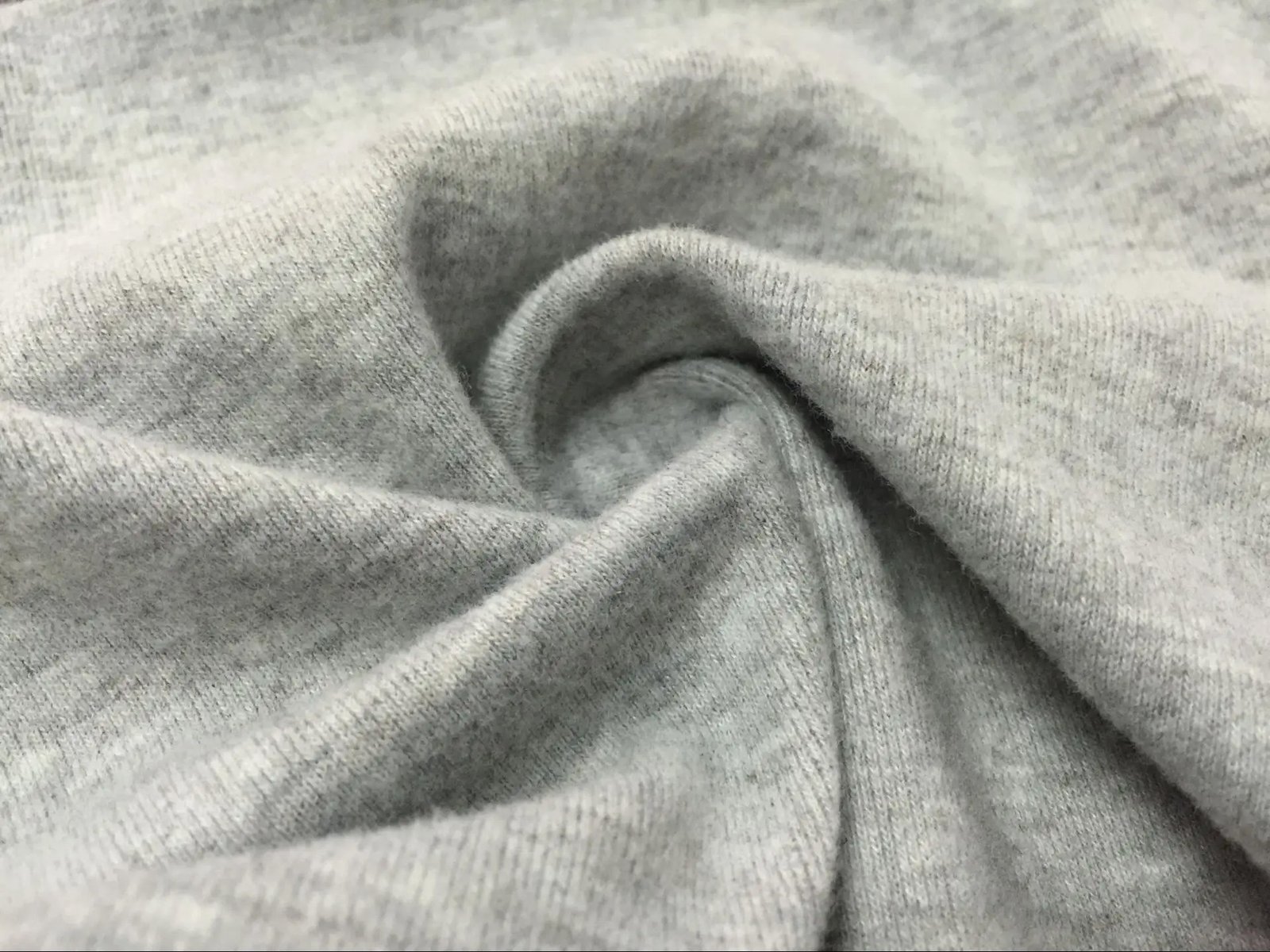
- Fabric Overview: Fleece is a synthetic fabric made through a napping process that creates a soft, fluffy texture. Known for its warmth, fleece is ideal for cold weather apparel. It’s lightweight, easy to care for, and often used in outdoor and activewear. Although fleece is excellent for insulation, it can lack breathability, which might not be ideal for intense physical activities.
- Pros: Warm, lightweight, soft, easy to care for.
- Cons: Not very breathable, prone to pilling.
- Recommended Uses: Perfect for making jackets, hoodies, and thermal wear.
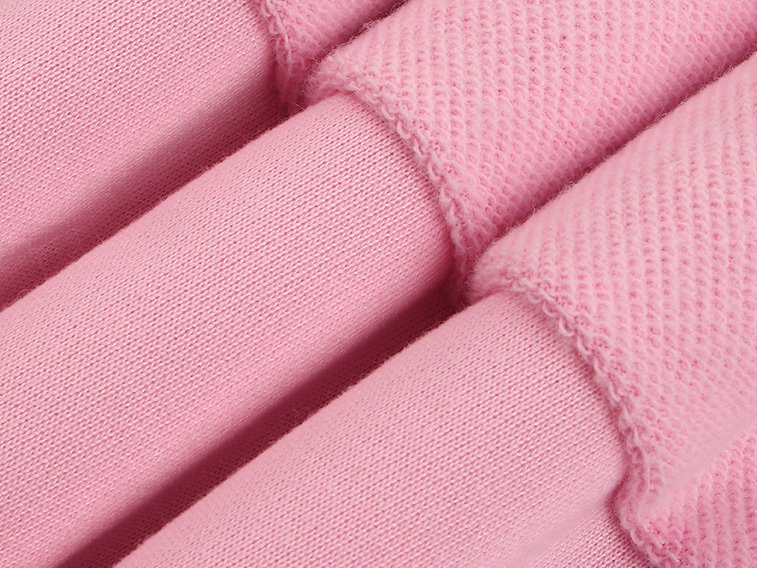
- Fabric Overview: French Terry is a knit fabric featuring loops and soft piles of yarn on one side and a smooth surface on the other. It is highly absorbent and comfortable, making it suitable for active and casual wear. The fabric provides moderate warmth and is often used in sweatshirts and joggers. Its moderate elasticity and soft feel make it a popular choice for everyday clothing.
- Pros: Good moisture absorption, comfortable, moderate elasticity.
- Cons: Provides less warmth compared to fleece, relatively heavier.
- Recommended Uses: Suitable for making sweatshirts, casual pants, and hoodies.
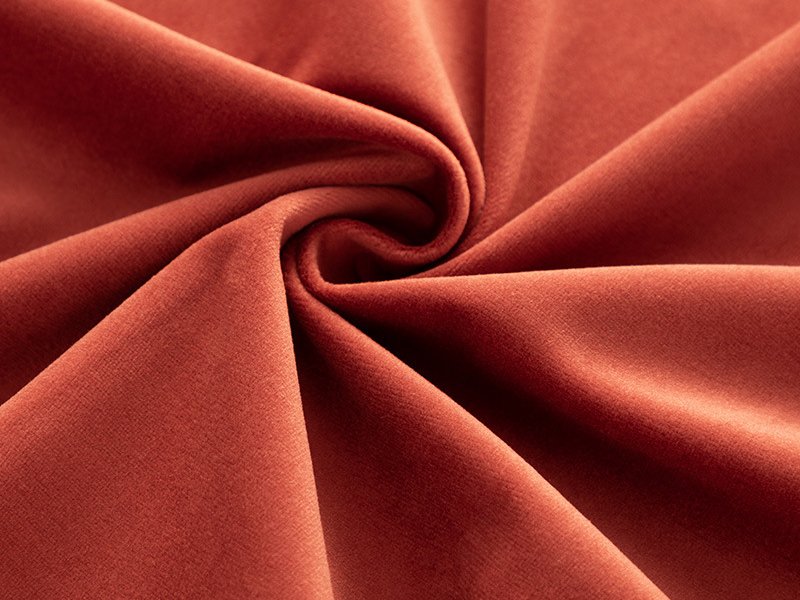
- Fabric Overview: Velvet and velour are fabrics known for their luxurious appearance and soft texture, made through a cut pile weaving process. Velvet is often used in high-end fashion and decorative garments, while velour is a knit version with a slightly stretchy nature. Both fabrics are warm and comfortable, but they require special care to maintain their texture and appearance.
- Pros: Soft feel, luxurious appearance, warm.
- Cons: Prone to snagging, requires careful maintenance, relatively heavy.
- Recommended Uses: Ideal for making formal wear, jackets, and decorative garments.

- Fabric Overview: Jersey is a stretchy knit fabric known for its softness and comfort. It is highly breathable and moisture-wicking, making it perfect for close-fitting garments like T-shirts and underwear. Jersey fabric’s elasticity makes it suitable for various activities, providing ease of movement and comfort. It is also easy to care for, making it a versatile choice for everyday wear.
- Pros: Comfortable, stretchy, breathable, easy to care for.
- Cons: Prone to pilling, average durability.
- Recommended Uses: Ideal for making T-shirts, underwear, and casual wear.
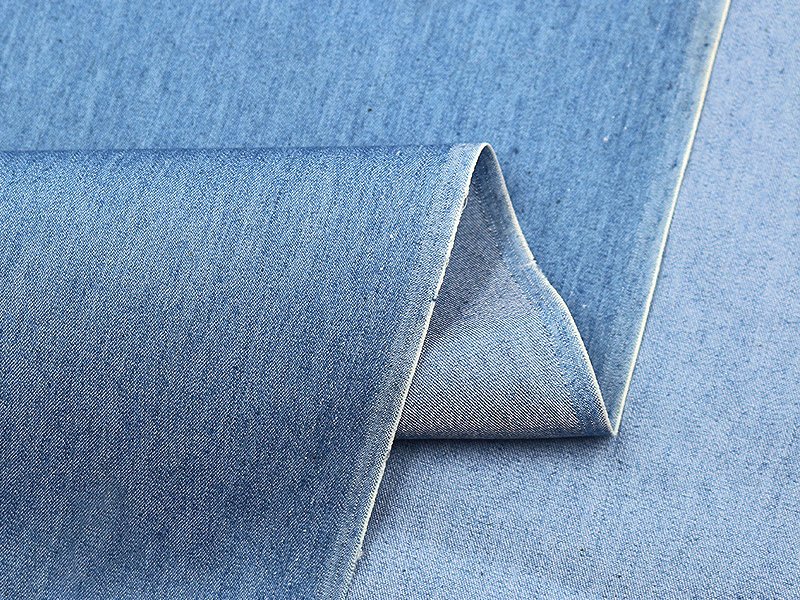
- Fabric Overview: Denim is a durable woven fabric typically made with a twill weave, known for its strength and rugged texture. It is a staple in casual fashion, widely used for jeans, jackets, and skirts. Denim can be processed in various ways, such as stone-washing and acid-washing, to create different styles. While it is durable, denim can be heavy and less breathable.
- Pros: Durable, classic style, versatile.
- Cons: Heavy, less breathable, can be stiff initially.
- Recommended Uses: Great for making jeans, jackets, and skirts.
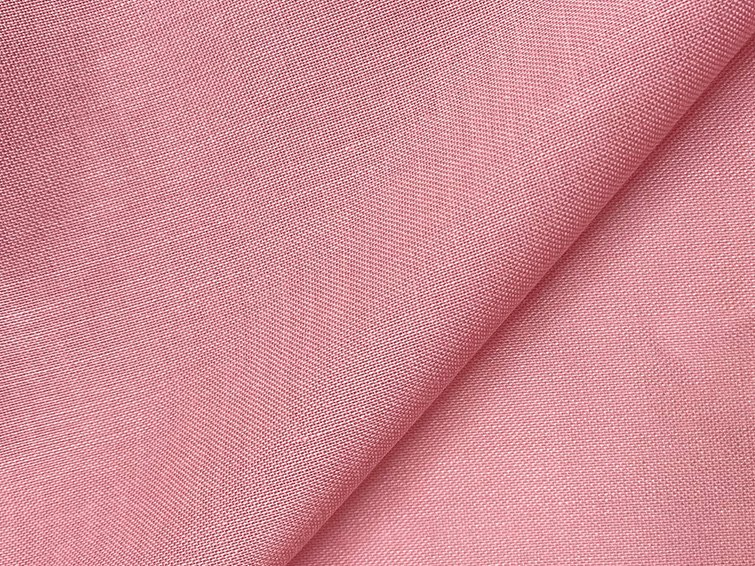
- Fabric Overview: Poplin is a tightly woven fabric with a smooth, crisp finish. It is lightweight and breathable, making it suitable for warm weather garments. Poplin is commonly used in shirts, dresses, and uniforms. Its smooth texture and slight sheen make it an excellent choice for both casual and formal wear. Although it is prone to wrinkling, its appearance and feel make it a favorite for many.
- Pros: Smooth texture, lightweight, breathable.
- Cons: Wrinkles easily, less stretchy.
- Recommended Uses: Perfect for making shirts, dresses, and summer garments.
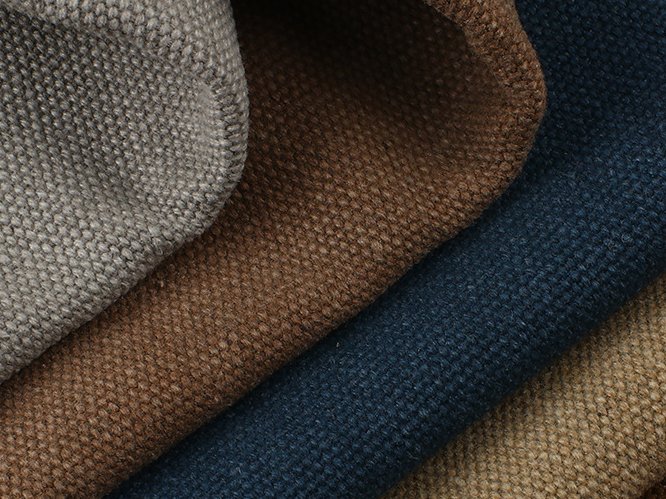
0
- Fabric Overview: Canvas is a sturdy, heavy-duty woven fabric known for its durability and versatility. It is widely used for outdoor and utility garments, as well as accessories. Canvas is resistant to wear and tear, making it ideal for rugged use. While it can be stiff initially, canvas softens with use and washing. Its strong, durable nature makes it suitable for a variety of practical applications.
- Pros: Durable, abrasion-resistant, versatile.
- Cons: Stiff, heavy, not very breathable.
- Recommended Uses: Suitable for making jackets, backpacks, and utility wear.
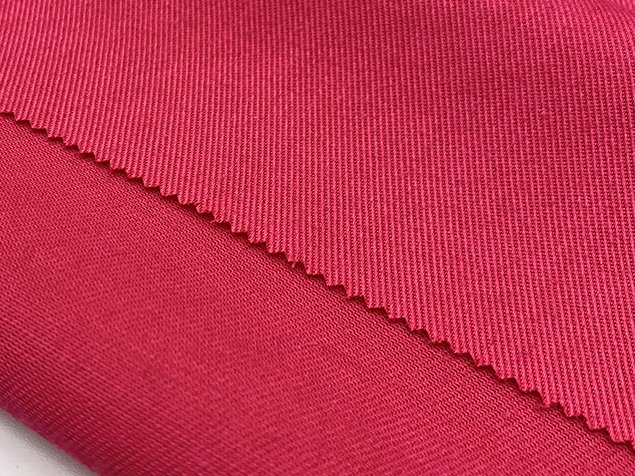
- Fabric Overview: Twill is a woven fabric known for its diagonal rib pattern, providing durability and strength. Commonly used in workwear and casual clothing, twill fabric is versatile and practical. It is often found in khakis, chinos, and denim. Twill’s structure gives it a unique texture and resilience, making it an excellent choice for garments that require durability.
- Pros: Durable, strong texture, versatile.
- Cons: Can be heavy, less breathable.
- Recommended Uses: Ideal for making pants, jackets, and workwear.

- Fabric Overview: Corduroy is a woven fabric with vertical ridges known as wales, giving it a distinct texture and appearance. It is warm, durable, and comfortable, making it suitable for fall and winter garments. Corduroy is commonly used for pants, jackets, and dresses. The fabric’s unique texture adds visual interest to any garment, while its warmth makes it practical for cooler weather.
- Pros: Warm, durable, unique texture.
- Cons: Prone to snagging, relatively heavy.
- Recommended Uses: Perfect for making pants, jackets, and dresses.
Conclusion
When choosing fabrics for kidswear, it’s essential to consider the comfort, durability, and safety of the materials. Each type of fabric offers unique properties that can cater to different needs and preferences. By understanding the characteristics of these fabrics, you can make informed decisions that align with your brand’s goals and meet your customers’ expectations. Whether for everyday wear or special occasions, selecting the right fabric ensures that children’s clothing is stylish, functional, and safe.

